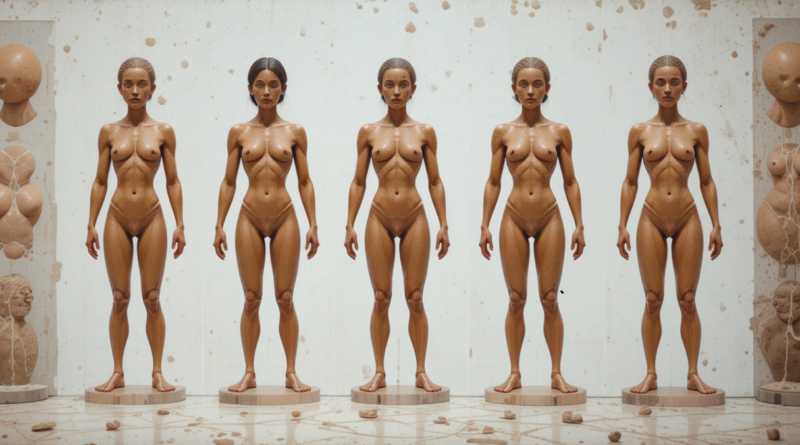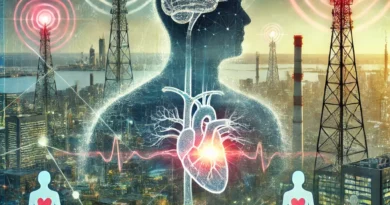Bodyoids: Medical Marvel or Ethical Minefield?
Imagine a world where the agonising wait for an organ transplant is a distant memory, where drugs are tested on human-like systems without harming a single animal, and where your doctor can whip up a bespoke kidney cloned from your own cells. While this might sound a little far-fetched it is in fact flirting with our current reality – scientists at Stanford University are pitching the concept of growing “bodyoids”—ethically sourced, human-like bodies without consciousness—to revolutionise medicine.
In a provocative piece published in MIT Technology Review, researchers Carsten T. Charlesworth, Henry T. Greely, and Hiromitsu Nakauchi argue that our current medical toolkit is hitting a wall. Why do breakthroughs in mice so rarely save human lives? Why do most drugs flop in clinical trials? And why are over 100,000 Americans still languishing on organ transplant waiting lists? Their answer: we’re desperately short of ethically sourced human bodies to study and harvest. Enter bodyoids—lab-grown entities made from pluripotent stem cells, designed to mimic human physiology but engineered to lack sentience or the ability to feel pain.
A Game-Changer for Medicine
The potential here is mind-blowing. Picture this: instead of relying on animal testing—which often fails to mirror human responses—scientists could use bodyoids to trial new drugs with pinpoint accuracy. These creations could churn out an endless supply of organs, tissues, and cells for transplantation, slashing the need for donors. Even better, by using a patient’s own cells, bodyoids could produce organs that are a perfect immunological match, waving goodbye to the gruelling regime of immunosuppressive drugs that transplant recipients endure today.
The tech isn’t pure fantasy either. Recent strides in artificial uterus technology and stem cell research—like growing embryo-like structures in labs—have nudged this concept closer to reality. Add in genetic tweaks to block brain development, and you’ve got a recipe for a body that’s human in form but not in spirit. It’s a tantalising prospect for tackling the organ shortage crisis, which claims 17 lives daily in the US alone.
The Ethical Tightrope
But hold your applause—here’s where it gets dicey. Growing spare human bodies, even brainless ones, isn’t exactly a cosy fireside chat topic. The Stanford trio admit it themselves: many will find the idea “grotesque or appalling,” and frankly, they’re not wrong to feel that way. The cells to kickstart these bodyoids would need to come from someone—raising thorny questions about consent. Did that donor sign up for their DNA to be spun into a lab-grown organ farm? And what about the bigger picture? If we start churning out human-like husks, could it blur the lines of what it means to be a person, especially for those already in vegetative states or lacking consciousness?
The researchers don’t dodge these concerns. They stress that the ethical and social stakes are as critical as the scientific ones. “Determining whether we should make bodyoids,” they write, “will require considerable thought, discussion, and debate.” Ultimately, it’s society and governments who’ll call the shots—a chilling thought when you consider how unevenly the reins have been pulled on artificial intelligence advancements.
A Glimpse Into the Future
So, where do we stand? The road to bodyoids is littered with technical hurdles—can these entities even survive without a brain? How long would it take to grow them to maturity? Yet the Stanford team remains cautiously optimistic, urging investment in this frontier while we hash out the moral mess. They’re not alone either; companies like Israel’s Renewal Bio are already dabbling in synthetic embryo tech for similar ends.
For now, bodyoids are a bold “what if”—a tantalising lifeline for millions and a Pandora’s box of ethical dilemmas rolled into one. As we teeter on the edge of this brave new world, one thing is clear: the conversation’s just getting started, and it’s one we can’t afford to sleepwalk through. What do you reckon—medical miracle or a step too far?
We’d love your comments on today’s topic!
For more articles like this one, click here.
Thought for the day:
“We can improve our relationships with others by leaps and bounds if we become encouragers instead of critics.” — Joyce Meyer



